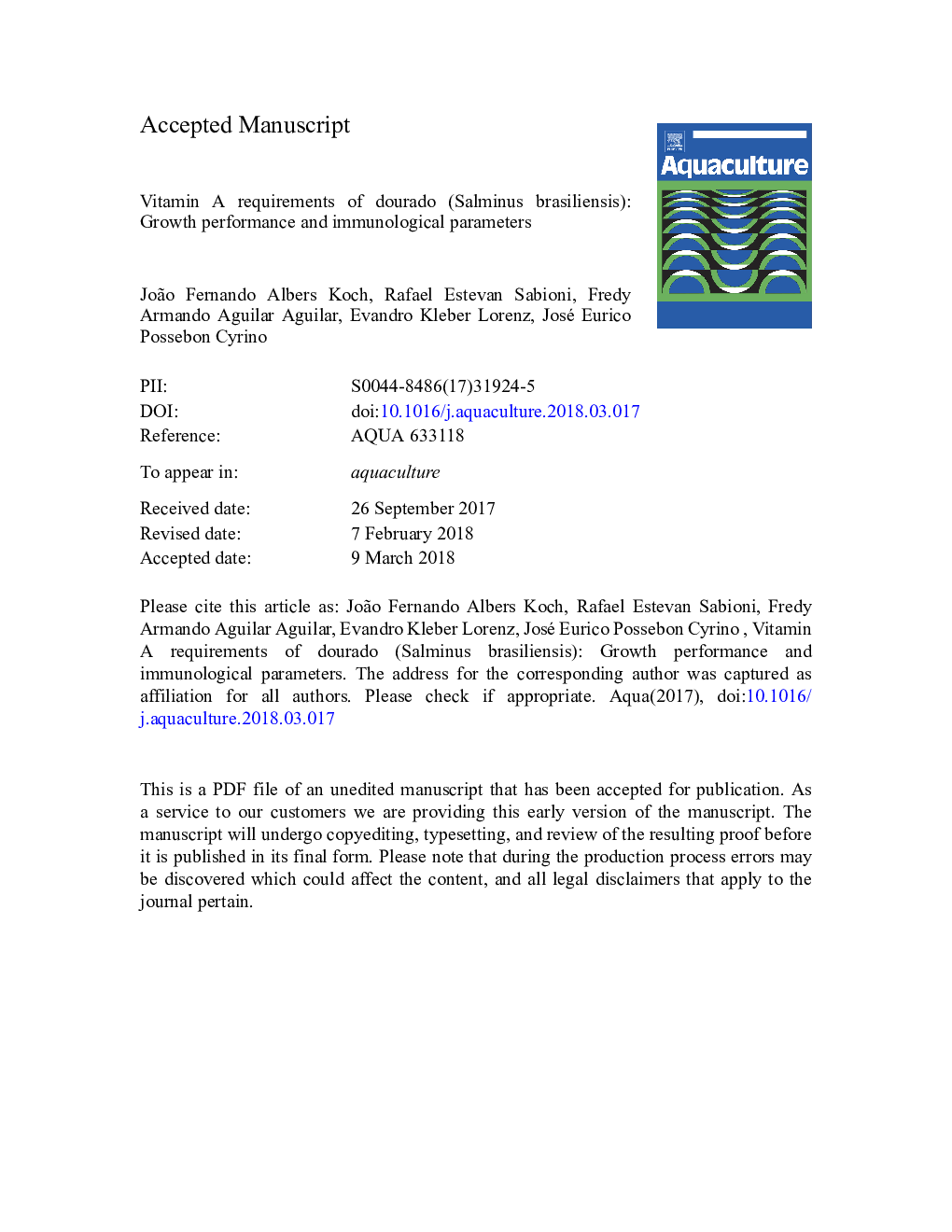| Article ID | Journal | Published Year | Pages | File Type |
|---|---|---|---|---|
| 8493241 | Aquaculture | 2018 | 35 Pages |
Abstract
Vitamins are dietary, organic compounds required for normal growth, reproduction and health of animals, fish included. Dietary vitamins also drive immunological responses of fish and information in that regard is still scarce. This work studied dietary vitamin A requirement of dourado Salminus brasiliensis, a novel target of intensive fish farming and research efforts. Juvenile dourado were stocked in 500-L tanks and fed for 101â¯days with six diets containing 1115.3; 3126.4; 8818.1; 18,256.1; 24,185.3 and 30,270.4â¯IUâ¯vitaminâ¯Aâ¯kgâ1 diet, and then sampled for growth performance indices, carcass composition, vitamin A contents in liver, hematological figures and leukocytes respiratory activity (LRA). Sub groups (nâ¯=â¯8) were inoculated intraperitoneally with Aeromonas hydrophila suspension (106â¯CFU) and sampled for hematology and LRA one week later. A break point for weight gain was detected at 3143â¯IUâ¯vitaminâ¯Aâ¯kgâ1 diet and the lowest specific growth rate was recorded for fish fed diets containing 1115.3â¯IUâ¯vitaminâ¯kgâ1 diet, which also had lowest erythrocyte count and blood hemoglobin contents. Hematocrit and total plasma protein of fish decreased after bacterial challenge, regardless of dietary vitamin A contents. Dietary vitamin A requirement of dourado was determined at 8500â¯IUâ¯kgâ1; although higher levels did not hamper performance and health, they are not recommended given the possibility of hypervitaminosis. The higher leukocytes activity related to vitamin A administration is a solid indicative of immunomodulation activity of this vitamin for the species.
Related Topics
Life Sciences
Agricultural and Biological Sciences
Aquatic Science
Authors
João Fernando Albers Koch, Rafael Estevan Sabioni, Fredy Armando Aguilar Aguilar, Evandro Kleber Lorenz, José Eurico Possebon Cyrino,
